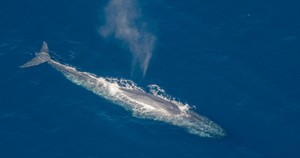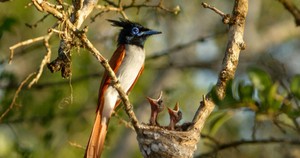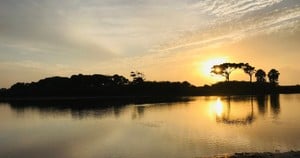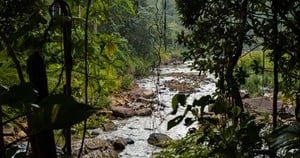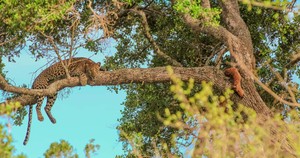- 29 November 2021
Five Reasons Why You Should Safari in Sri Lanka
There’s no shortage of incredible wildlife experiences in Sri Lanka. Regardless of where you may be on our island, you’ll come to discover 27 different national parks, scattered across diverse landscapes, plains and terrains. As a whole, the rich biodiversity and high density of endemism has proven to be one of the many reasons why wilderness lovers and enthusiasts have continued to visit regularly for a safari experience.
There’s no shortage of incredible wildlife experiences in Sri Lanka. Regardless of where you may be on our island, you’ll come to discover 27 different national parks, scattered across diverse landscapes, plains and terrains. As a whole, the rich biodiversity and high density of endemism has proven to be one of the many reasons why wilderness lovers and enthusiasts have continued to visit regularly for a safari experience.
Sightings of the Big Four
Sri Lanka boasts the highest density of leopard population in the world and it is also home to both the largest land and marine mammals in the world – the Asian elephant and the Blue whale. The Sri Lankan sloth bear is a subspecies that is endemic to the island as well. These great animals make up the Big Four of our little island and are often on the ‘must-see’ list of wildlife enthusiasts from across the world. The Yala National Park is a great place for sighting leopards; the Minneriya National Park for the Asian elephant; the southern coast and its waters for the Blue whale and the sloth bears at the Uda Walawe National Park.
Underrated Bird Life
For an island as small as ours, the birdlife is quite extraordinary. Discover a large number of native as well as migrant bird species that can be sighted throughout the year. Sri Lanka is home to over 435 species of birds in total, of which 236 are resident breeders, 203 are migrants and the rest are vagrant types. The seasonal migratory birds are terrestrial as well as aquatic, ending their long journey on our island, making it a regular wintering ground. Yala, Wilpattu, Horton Plains, Uda Walawe and Bundala are amongst some of the best known reserves, parks and areas to visit.
The Views
As much as safaris are about the creatures that inhabit the wild, notice some of the best views of the surrounding landscape. Getting to some of the national parks might prove to be a bit more challenging than others, but they can also be just as rewarding. Horton Plains for example will provide a very diverse panorama even if it’s misty, which is quite captivating compared to Kumana National Park that is home to mangroves, kumbuk trees and marshland.
Lesser Known Parks and Plains
The Lunugamvehera National Park acts as a reserve corridor for elephants. Although often overshadowed by its two big neighbouring parks – Yala and Uda Walawe – this one’s just as special for those looking for a quieter safari experience. The Sinharaja Forest Reserve is our island’s only tropical rainforest. Research suggests more than 60% of the existing trees are endemic, and also considered rare. The lush reserve is also home to endemic wildlife, especially birds, mammals and butterflies, as well as various species of insects, reptiles and amphibians. Other lesser parks and plains include Wasgamuwa, Gal Oya, Flood Plains, Kalametiya Bird Sanctuary, Pigeon Island and Somawathiya that call for a visit at least once during your travels across our country.
All Year Round Experience
Safaris are an all year round experience on our island. Even if the weather patterns change in one zone, the outlook can be different in another. Do watch out for the monsoon seasons – southwestern which occurs between May and September, and the northeastern which occurs between October and January. Either way, you’ll be sure to have some great sightings and plenty of exciting adventures.

Extended Stay Savings
Extend your stay for 6+ nights at Cape Weligama, save more and enjoy the holiday of a lifetime.














